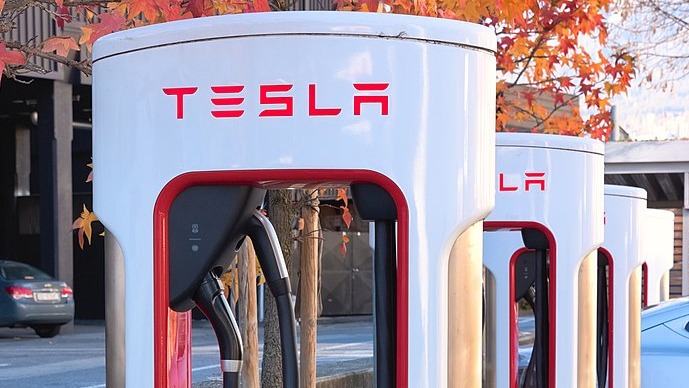Tesla has launched a robotaxi trial in Texas, marking the first time that Tesla’s driverless human-powered cars have carried paying customers.
On Sunday, the carmaker deployed a small group of self-driving taxis that picked up passengers in the city of Austin, with rides being offered at a fixed rate of $4.20 via a dedicated robotaxi app, Tesla’s chief executive Elon Musk said on X.
On X, Musk said the “robotaxi launch” event represented “the culmination of a decade of hard work”. He added that “the AI chip and software teams were built from the ground up within Tesla”.
During the day, a dozen self-driving Teslas, driven by a safety monitor and without humans behind the wheel, picked up paying passengers in the South Congress district.
Influencers were among the first to test the service, sharing their experience online as part of a carefully monitored launch. Sawyer Merritt, Tesla investor and social media personality, was one of the first to try the robotaxi, posting a video on X in which he is seen ordering a robotaxi from a restaurant.
On Sunday, Reuters reported the opinions of experts who agree Tesla still faces major challenges in delivering on Musk’s promises to scale up quickly, in Austin and other cities.
Philip Koopman, a Carnegie Mellon University computer engineering professor and expert in autonomous vehicle technology, told the broadcaster it could take “years or decades” for Tesla and self-driving rivals, such as Alphabet’s Waymo, to fully develop a robotaxi industry.
“A successful experiment in Austin for Tesla would be the end of the beginning, not the beginning of the end,” he added.
As the launch date for Tesla’s robotaxis approaches, Texas lawmakers have moved to enact regulations on autonomous vehicles.
Texas Governor Greg Abbott signed a law on Friday requiring companies like Tesla to obtain a state permit before operating self-driving vehicles without a human driver on public roads.
Part of the new rules’ requirement demand that autonomous vehicles are registered, titled, and insured in Texas, comply with federal safety standards, and provide emergency response protocols for police and first responders.
The new law is set to take effect on 1 September.
In 2024, at the “We, Robot” showcase event, Musk said he intended to put the robocars on the market for less than $30,000, emphasising how these self-driving vehicles could drastically change the way people perceive driving and owning a vehicle.
“We’ll move from supervised full self-driving to unsupervised full self-driving, where the car…you could fall asleep and wake up at your destination,” he said.


